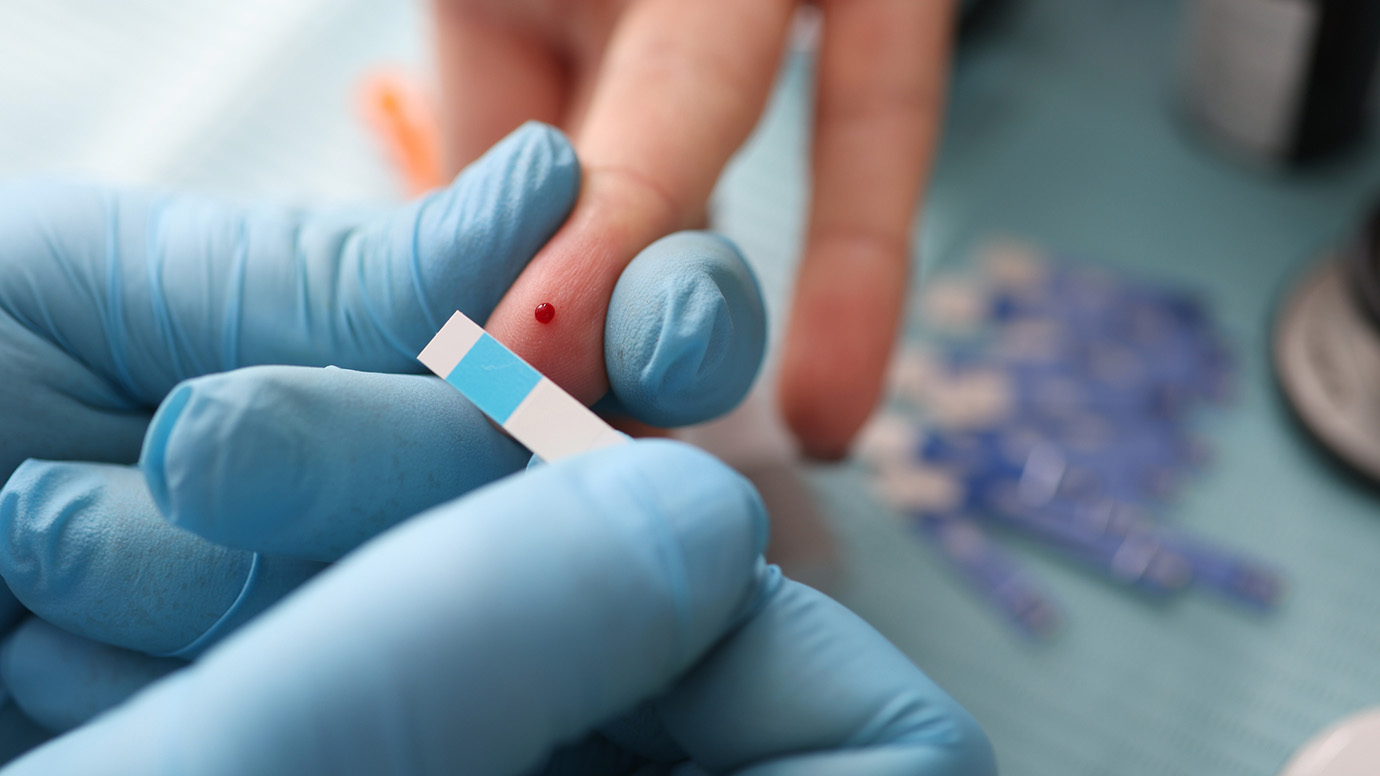All the Hormones Diabetes Impacts
Written by: Christine Fallabel
6 minute read
November 25, 2025
Diabetes and hormones go hand-in-hand. Each type of diabetes has different ways in which hormones in the body are affected and interact.
It is important to know how diabetes impacts your hormones, so you know exactly what’s going on in your body and why.
This article will walk through the different hormones that are affected in diabetes.
Insulin
Insulin is produced in the pancreas by beta cells, which allows the body to convert food into fuel. People living with type 1 diabetes (T1D) no longer make the hormone, so they must take insulin. People with type 2 diabetes (T2D) may produce their own insulin, but usually not enough of it, so sometimes must take insulin to manage blood sugar levels.
Needing to take insulin is NOT a bad thing! It just means your body can’t get what it needs on its own.
While insulin is key, the reality of life with diabetes is more complicated. Diabetes influences and is influenced by a web of hormones.
Glucagon
Within the pancreas, alpha cells, which produce glucagon, are also impacted by diabetes.
Normally, glucagon is released throughout the day to regulate the body’s glucose and fuel levels. Because the body of a person with diabetes doesn’t always regulate this on its own, this makes manual balancing of insulin and blood sugar levels needed.
This can affect meal time for people with T1D, causing the body to get overloaded with both sugar from the food they eat and glucagon, leading to blood sugar spikes. Someone without diabetes would have lower glucagon release during and after a meal.
Learn more about glucagon (including the glucagon device options available), and when you should use it.
Incretin Hormones
Alongside glucagon, there are two incretin hormones—hormones that cause glucose levels to lower—that are impaired in people with diabetes.
GLP-1 (glucagon-like peptide) and GIP (glucose-dependent insulinotropic polypeptide) act as the traffic directors for insulin and glucagon. These hormones improve insulin release and lower glucagon levels.
In type 2 diabetes (T2D), this effect can be impaired, making managing blood sugars around meals hard.
GLP-1s also work to slow down how quickly food empties the stomach. For people with diabetes, this process isn’t regulated properly, leading to issues with feeling full after a meal.
There are several GLP-1 drugs on the market. They are approved for use in type 2 diabetes, but some doctors may prescribe their use for people with type 1 diabetes.
Amylin
Beta cells also release another hormone called amylin. Without working beta cells, the body cannot make amylin either.
Amylin works like a GLP-1. When in the body, it slows down the rate at which food empties the stomach into the small intestine and helps stop the body’s release of glucagon; both actions keep blood sugar levels from rising too much after eating or drinking.
Glucagon helps regulate the body’s hunger. When amylin and GLP-1 are working well to lower glucagon release while eating, your brain and body know that it does not need to keep eating food. A person with T1D may find that they don’t feel full after what should be the right amount of food for their body.
In other words, if you feel hungry all the time, it’s not your fault. This is another thing to blame on your beta cells!
An amylin medication is available and works similarly to GLP-1 drugs, but is approved for use in type 1 diabetes. If you struggle with post-meal blood sugar control or weight gain due to appetite issues, one or the other may work well for you.
Adrenaline, Cortisol, Growth and other hormones
Known as stress hormones, adrenaline (epinephrine), cortisol and growth hormone (also known as human growth hormone, or HGH) each make blood sugar levels rise. When working correctly, they are needed to live.
But sometimes blood sugar swings or stress cause problems with these hormones, which can affect blood sugar levels and hormone regulation in people with diabetes.
Adrenaline
In people who experience low blood sugar, adrenaline is a hormone released by nerve endings and the adrenals to help signal to the brain that something is wrong, and to help the body recover from low blood sugar.
For people who experience low blood sugar often, the nervous system can become used to it. This leads to a lack of adrenaline, which can cause hypo-unawareness—when you cannot feel your lows.
Luckily, this can be treated by going low less often. This will let the body readjust to healthy blood sugar levels and renew the right adrenaline response to feel a low.
Cortisol
Cortisol is also affected by diabetes. Cortisol helps regulate insulin in the body and aids the body with extra fuel during stressful situations.
Cortisol is a steroid hormone made in the adrenal glands. But when you have too much, cortisol can make the body resistant to the effects of the insulin it requires. Higher cortisol makes fat and muscle more resistant to insulin, boosting sugar release in the liver. When you’re stressed, your blood sugar may be stubbornly high–this is not your fault!
Other Hormones
Like cortisol, growth hormone balances insulin in muscle and fat cells. The hormone helps metabolism and energy levels. It can also be overactive in people who experience low blood sugar, as the body will sometimes release growth hormone to help respond to a low.
While stress hormones are needed for treating low blood sugar levels, when you start with stable blood sugar levels and experience stress, it may cause blood sugar spikes.
Also, the role of sex hormones and diabetes is linked. Lower estrogen levels in older women seem to increase the risk of type 2 diabetes, because estrogen affects GLP-1 production and glucagon release.
A recent study of sex hormones and diabetes progression found that low levels of the sex-hormone binding globulin (SHBG) are a strong predictor of T2D in women and men and new research is coming out all the time.
How our understanding is changing and what that means
Hormone research is shifting from a “one-hormone, one-effect” approach to network models, where many hormones interact, change over time and vary from person to person.
New hormones are also being discovered as players in diabetes.
For example, researchers at Harvard T.H. Chan School of Public Health recently identified a hormone complex called Fabkin (made of fatty acid binding protein 4 + ADK + NDPK) that regulates energy in fat cells and influences beta cell function. In mice, blocking fabkin prevented both T1D and T2D!
Final thoughts
While insulin is the star of the diabetes hormone story, it is far from the only actor. Glucagon, incretins, adrenal hormones and sex hormones all play key roles.
T1D and T2D are different in important ways, but both reflect a breakdown of hormonal balance, not just one hormone failing.
Hormones and their effects may differ by gender, age and body makeup.
And our understanding is changing fast. We’re going beyond one hormone to map the hormonal web of diabetes. This can change how we monitor risk, how we act and how we treat diabetes.
In short, diabetes isn’t just a matter of “insulin gone wrong.” It’s a story of how hormones work together. As research continues, we’ll likely discover even more hormones influencing (and being influenced by) diabetes, which means better care may lie ahead.
Related Resources

Forget everything you think you know about diabetes. Depending on where you learned it, there’s...
Read more

During the week of October 14, 2025, California became the 29th U.S. state to pass...
Read more

Starting in January 2026, Civica Rx, a nonprofit drug manufacturing company, will launch its affordable...
Read more


